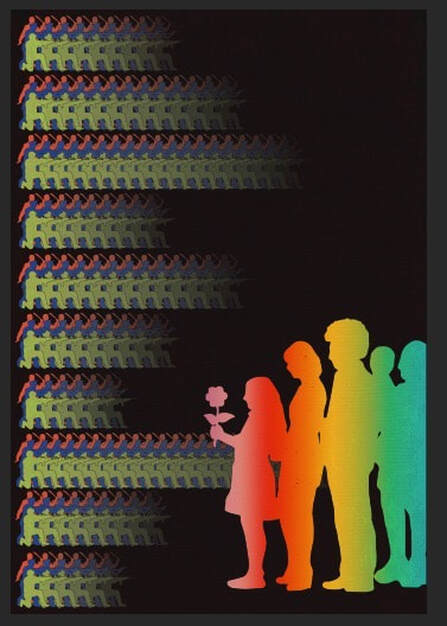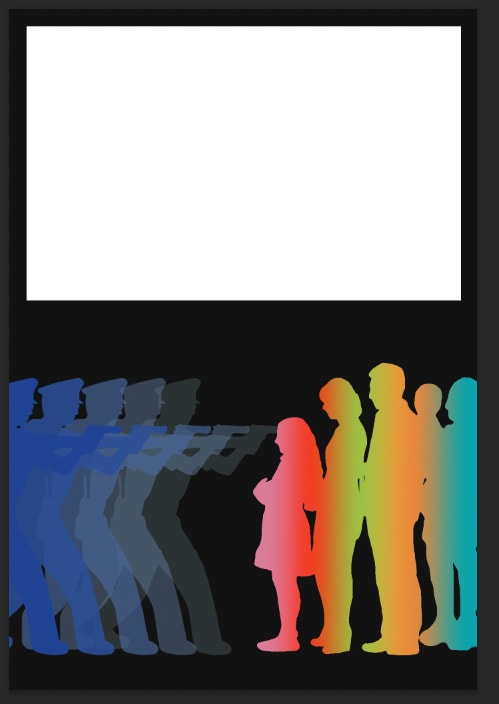
The Death and Life of State Repression: Understanding Onset, Escalation, Termination and Recurrence with Benjamin Appel. Oxford University Press. Forthcoming.
INtro: Researchers, policymakers, advocates, activists and ordinary people have been interested with trying to reduce state repression/human rights violation for quite some time. Indeed, this has been something of a holy grail within this line of inquiry. We argue that such a search has been hindered by how we think about the problem and, directly following from this, how we study it.
Overview: The Death and Life of State Repression addresses a problem that dates back at least 75 years, if not before. Since World War II, individuals and institutions from around the world have been concerned with state repression/human rights violation and since about 1990 a robust empirical literature has emerged to investigate what drives this behavior up or down (i.e., exploring variation). While useful, this work has generally ignored important aspects of the “Death/Life cycle” of state repression: i.e., its onset, escalation, termination and recurrence. Such an approach is important because different explanations and policies might be relevant for different parts of the cycle.
Exploring a new database of repressive spells from 1976-2006 and new theory regarding spells, The Death and Life of State Repression breaks new ground in a variety of different ways. Within the book, it is argued that repression is a sticky process that is largely slow-moving and non-adaptive. Consequently, change in this behavior is rare unless the ruling cohort is perturbed in some manner. Now what perturbs is somewhat surprising. The Death and Life of State Repression does not argue or find support for the predominant variables/policies advanced by the international community (i.e., naming/shaming, international law, military intervention and economic sanctions). Rather, it advances and finds that political democratization plays a crucial role in reducing and stopping most aspects of repressive spells and democratization itself is influenced by non-violent direction action. The book has major implications for those who wish to study state repression as well as those who have an interest in trying to reduce as well as stop it from occurring across the Death/Life cycle. The path to less repressive behavior has never been clearer.
Contents
INtro: Researchers, policymakers, advocates, activists and ordinary people have been interested with trying to reduce state repression/human rights violation for quite some time. Indeed, this has been something of a holy grail within this line of inquiry. We argue that such a search has been hindered by how we think about the problem and, directly following from this, how we study it.
Overview: The Death and Life of State Repression addresses a problem that dates back at least 75 years, if not before. Since World War II, individuals and institutions from around the world have been concerned with state repression/human rights violation and since about 1990 a robust empirical literature has emerged to investigate what drives this behavior up or down (i.e., exploring variation). While useful, this work has generally ignored important aspects of the “Death/Life cycle” of state repression: i.e., its onset, escalation, termination and recurrence. Such an approach is important because different explanations and policies might be relevant for different parts of the cycle.
Exploring a new database of repressive spells from 1976-2006 and new theory regarding spells, The Death and Life of State Repression breaks new ground in a variety of different ways. Within the book, it is argued that repression is a sticky process that is largely slow-moving and non-adaptive. Consequently, change in this behavior is rare unless the ruling cohort is perturbed in some manner. Now what perturbs is somewhat surprising. The Death and Life of State Repression does not argue or find support for the predominant variables/policies advanced by the international community (i.e., naming/shaming, international law, military intervention and economic sanctions). Rather, it advances and finds that political democratization plays a crucial role in reducing and stopping most aspects of repressive spells and democratization itself is influenced by non-violent direction action. The book has major implications for those who wish to study state repression as well as those who have an interest in trying to reduce as well as stop it from occurring across the Death/Life cycle. The path to less repressive behavior has never been clearer.
Contents
- 1. Preface
- 2. Introduction
- 3. Old and New Directions in the Study of State Repression
- 4. Studying Spells: A New Unit of Analysis, Measure and Model
- 5. Starting Spells
- 6. Escalating Spells
- 7. Ending Spells
- 8. Recurring Spells
- 9. Cases
- 10. What We Can Do Better
- Appendices
Blurbs
"This book is a comprehensive, ambitious, and sober analysis of the life cycles of late-scale spells of state repression. A must read."
- Erica Chenoweth, Harvard University
"Christian Davenport is the world's leading scholar of state repression and has made a great team with Benjamin Appel. The Death and Life of State Repression is an instant classic."
- Nicholas Sambanis, University of Pennsylvania
"The Death and Life of State Repression provides academics with an insightful and perceptive analysis that should fundamentally reconceptualize the study of large-scale human rights abuses, while offering governments and activists new insights into how to reverse such atrocities. A tour de force by Christian Davenport, one of the world's deepest thinkings on political violence, and Benjamin Appel."
- Rachel Kleinfeld, Carnegie Endowment for International Peace
"This book represents a tour de force that is a must-read for all interested in stopping state repression - from scholars, to policymakers, activists, and the general public."
- James Raymond Vreeland, Princeton University
- Erica Chenoweth, Harvard University
"Christian Davenport is the world's leading scholar of state repression and has made a great team with Benjamin Appel. The Death and Life of State Repression is an instant classic."
- Nicholas Sambanis, University of Pennsylvania
"The Death and Life of State Repression provides academics with an insightful and perceptive analysis that should fundamentally reconceptualize the study of large-scale human rights abuses, while offering governments and activists new insights into how to reverse such atrocities. A tour de force by Christian Davenport, one of the world's deepest thinkings on political violence, and Benjamin Appel."
- Rachel Kleinfeld, Carnegie Endowment for International Peace
"This book represents a tour de force that is a must-read for all interested in stopping state repression - from scholars, to policymakers, activists, and the general public."
- James Raymond Vreeland, Princeton University
Alternative Images for the Cover from Matthew Bremer
Podcast
Democracy is the Antidote to State Repression
In this Talking Policy episode from the University of California Institute on Global Conflict and Cooperation, Christian Davenport, one of the world’s leading scholars of state repression and a professor at the University of Michigan, and Ben Appel, an associate professor at the UC San Diego School of Global Policy and Strategy, discuss their new book, The Death and Life of State Repression. This interview was conducted by IGCC associate director Lindsay Morgan, and recorded on November 30.
Find Transcription here: ucigcc.org/podcast/democracy-is-the-antidote-to-state-repression/
In this Talking Policy episode from the University of California Institute on Global Conflict and Cooperation, Christian Davenport, one of the world’s leading scholars of state repression and a professor at the University of Michigan, and Ben Appel, an associate professor at the UC San Diego School of Global Policy and Strategy, discuss their new book, The Death and Life of State Repression. This interview was conducted by IGCC associate director Lindsay Morgan, and recorded on November 30.
Find Transcription here: ucigcc.org/podcast/democracy-is-the-antidote-to-state-repression/






